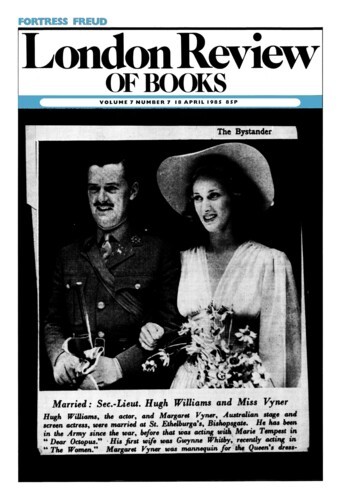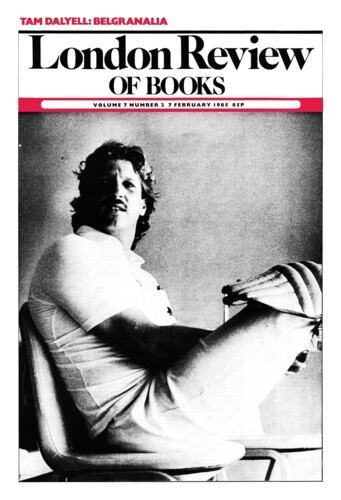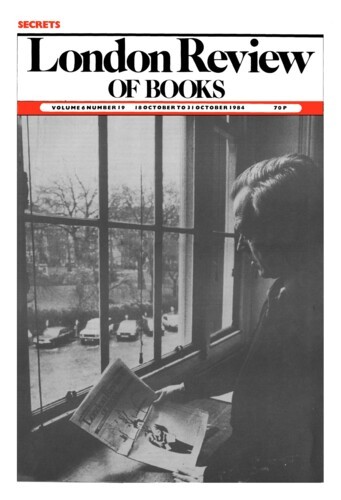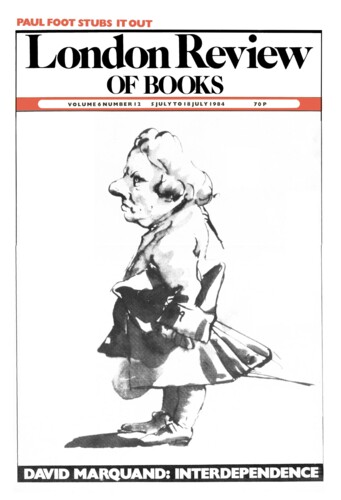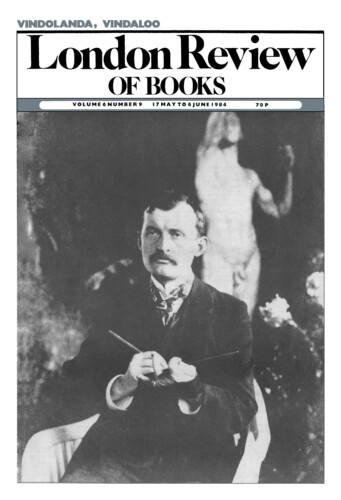Phattbookia Stupenda
Nicholas Spice, 18 April 1985
With the publication of his latest novel, Illywhacker, the author of The Fat Man in History has secured himself a prominent place in the history of the fat book. If you’re not normally a fat book reader, you mustn’t be outfaced by the fatness of Illywhacker, nor by the price, which is hardly a fat book price, especially when the fat book is as comely as this one. Indeed, all the signs are that this is a book the publishers believe in. They’ve put their production values where their blurb is, printing the book on paper likely to outlast the century, and binding it so that you can prop it open on the breakfast table without breaking the spine or knocking over the lemon curd. They must think they’ll sell a lot. They’re right, and their salesmen won’t need to be illywhackers.
